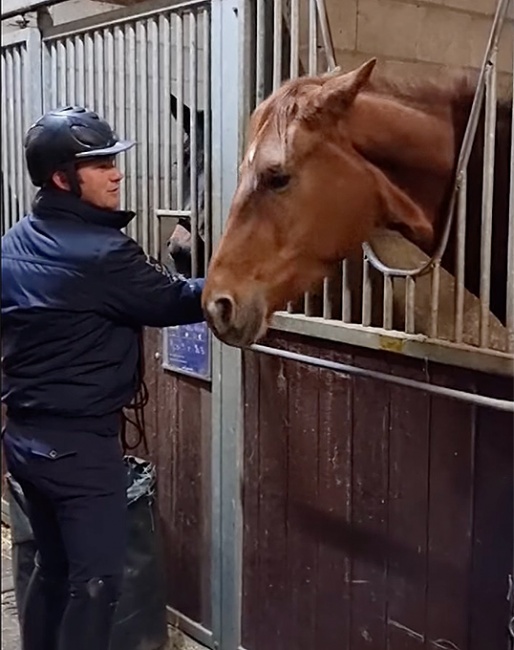
Tristan Tucker, an Australian Grand Prix dressage rider who is specialized in natural horsemanship, shared an interesting post on Facebook about horses that make (grumpy) faces and how we as humans should respond to it.
"We all have the ability to show our horses how to navigate their way through our human world," said Tucker who branded his natural horsemanship method as the TRT Method. "Learning to be the best mentor for every horse I meet is my journey. Teaching it to others is my purpose."
Read his full Christmas post here:
Horses that Make a Face
Horses that make a face.. the grumpy look over the stable door, or while in the tacxking up place.
I think of these faces as a learnt pattern, a copying or mirroring of the conversations they have had with their mother, or while being in a group..
When in the stable the same mannerisms can occur maybe it starts with other horses passing, protecting their penthouse suit, during feeding, basic horse conversations.
The important thing I try to remember is the expression may sometimes be only an expression, a face, a habit, that has no meaning until 'WE' give it meaning in our space of conversation between ourselves and the horses.
The one thing I try to remind my self not to do is retaliate in this moment or discipline the expression, because it is in that moment of my response in the conversation that will give it meaning, and a certain feeling between us. Horse / human.
The other reaction I try to avoid is me shying away, giving a sense of feeling threatened. Which in that moment will also give meaning to the expression in the conversation.
I only in a safe way try to instill a sense of peace in this moment, a moment of contact with out intention or thought.
Even with a soft connection in the moment of conversation In response to the facial expression, I don't want to have a though of 'don't do that' 'we don't like that' or even 'Good girl or boy that's better'.
We don't want to evoke thought in that moment, only sensation, a feeling, an experience.